If someone makes less than $913 week/$47,476 a year, they likely now qualify for overtime pay.
This means as of 12/01/2016, your company is required to pay overtime to almost all employees who do not earn this amount in the calendar year.
Things you can do to be in compliance
- Increase staff salaries to the minimum compensation required
- Track employee hours and pay overtime as necessary
(or track and limit to 40 hour weeks)
Tracking staff hours has become more important than ever.
Employers may use any method for tracking hours as long as it is accurate, this includes:
- Time Clock
- Pen and Paper System
- Time Tracking Software
Benefits of Time Tracking Software
Unlike time clock systems and paper-based time tracking, using a web-based time tracking software will provide up-to-the-minute reports about your current staff hours to help your accounting and HR teams keep track of labor costs.
Beyond staff hours, you could also keep better track of:
- Project Billings
- Billable and Non-Billable Hours
- Holiday and Vacation Time
- Paid Time Off and Comp Time
- Profit and Loss
How to get started with Time Tracking
- Choose your tracking method (Time Clock, Paper Timesheets, Software)
- Provide a set of time tracking guidelines to your team
- Set a start date
- Check in with your team
A Good Web-Based Solution
Web based time tracking can be used by your employees on any number of devices: computers, tablets, phones, etc. and will allow you to avoid the hassle of maintaining software installations on staff computers.
If you have a web browser and internet access, you are good to go.
Time IQ can provide all of the above time tracking features, and is a great solution for companies of any size that need to implement a new time tracking protocol within their organization.
For more information on Time IQ, or to start a free 30 day trial, check it out here.


